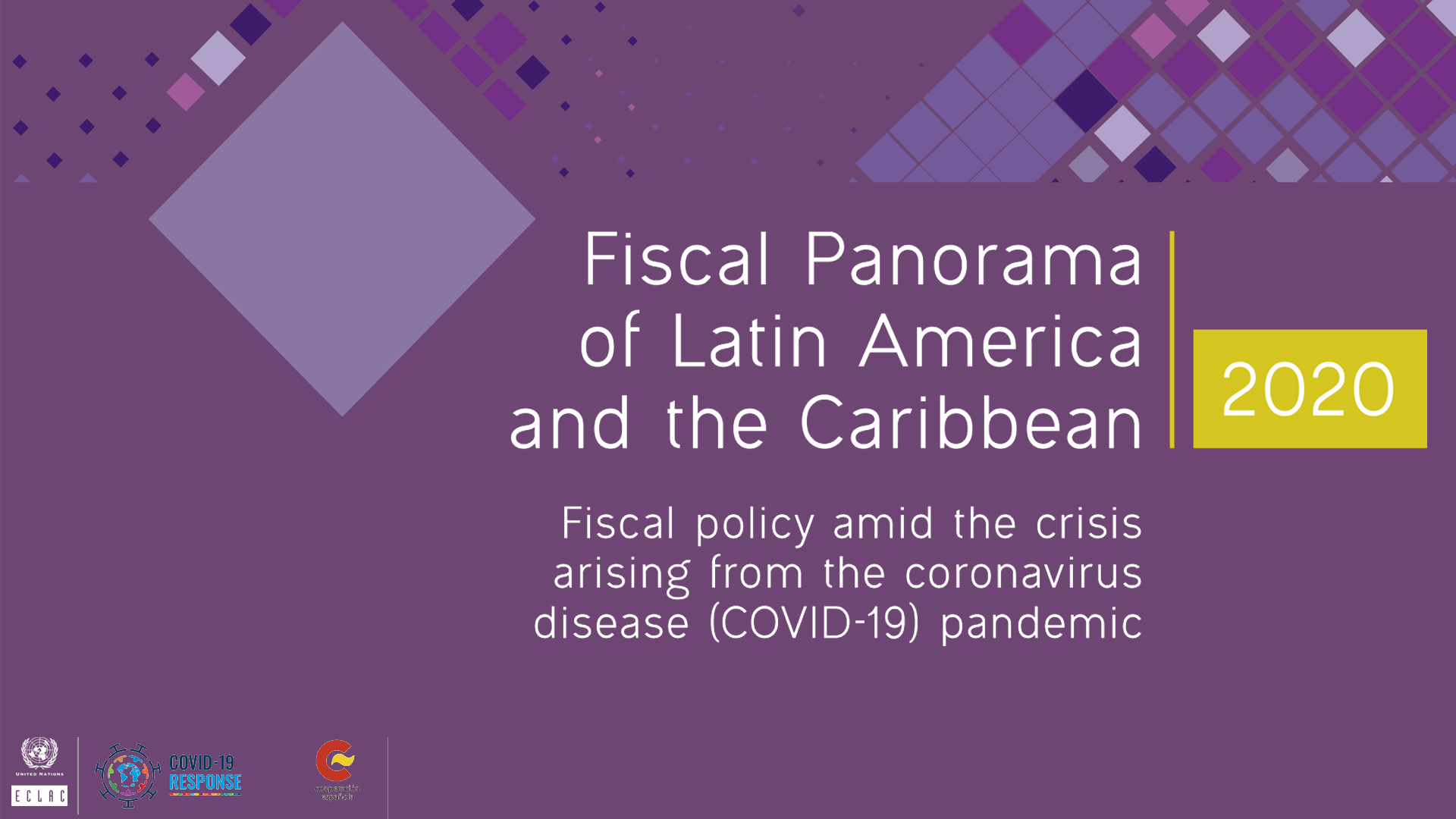Finance Authorities Dialogued with ECLAC about Fiscal Policy Challenges in Mitigation of the Pandemic and the Subsequent Economic Reactivation
Work area(s)
Ministers, Deputy Ministers and other high-level officials from 15 Latin American countries held a meeting with the Commission’s Executive Secretary, Alicia Bárcena.

The Economic Commission for Latin America and the Caribbean (ECLAC) dialogued on Thursday, August 20, with authorities from the Finance Ministries of numerous Latin American countries regarding fiscal policy challenges in mitigation of the COVID-19 pandemic’s economic and social effects and in the processes for reactivating economies.
At the meeting – held in the framework of the XXXII Regional Seminar on Fiscal Policy that ECLAC organizes annually, which took place virtually on this occasion – the participants included Ministers and Deputy Ministers as well as high-level technical officials from 15 countries in the region.
The event kicked off with a presentation by ECLAC’s Executive Secretary, Alicia Bárcena, about the main results of the Fiscal Panorama of Latin America and the Caribbean 2020, a report published by the Commission on July 6 of this year. She highlighted that during this unprecedented crisis, it has become clear that public intervention to strengthen health systems, protect household income (especially for those most vulnerable), and safeguard employment and productive capacity is critically important for mitigating the pandemic’s effects and resuming growth. After her presentation, the dialogue with authorities began.
In her presentation, ECLAC’s highest authority explained that expansionary fiscal policies are needed in the framework of fiscal sustainability to articulate the emergency with the economic reactivation. “Fiscal austerity is not an option, public efforts to fuel the reactivation must be sustained. In this sense, fiscal policy will play a key role in driving demand through measures that seek to foster investment, support household consumption and create employment, while also strengthening supply through access to financing and liquidity – particularly for Micro, Small and Medium-sized Enterprises (MSMEs) – and by supporting strategic sectors and incentivizing productive and technological development. At the same time, the region should move towards the universalization of social protection and health systems,” she contended.
Bárcena added that an expansionary fiscal policy in a framework of sustainability requires focusing on the dynamics of fiscal revenue, with improvements to the tax structure’s progressiveness and the efficiency of revenue-raising capacity, along with public spending. “Economic growth, productivity increases and progress on equality will be key to increasing revenue-raising capacity in the post-pandemic period,” Bárcena indicated.
During this fruitful dialogue, finance authorities and ECLAC’s officials agreed on the importance of preparing the public sectors of the region’s countries to face uncertainty and to support the population and the productive sector during, and after, the pandemic. They stressed the need to continue strengthening the role of the State and that of fiscal policy vis-à-vis the economic recovery, since households and the productive sector will need the support of public intervention.
In addition, they highlighted the importance of increasing access to financing and liquidity at an international level, underlining the need to establish mechanisms to access long-term financing under favorable conditions. In this area, they addressed the importance of international and regional coordination to spur on the region’s economic recovery.
The Finance Ministry authorities were also informed of the Financing for Development process being spearheaded by the United Nations, which seeks to establish agreed-upon instruments to advance on improving the conditions of financing and liquidity available to countries. “The Initiative on Financing for Development in the Era of COVID-19 and Beyond, co-convened by the Prime Ministers of Canada and Jamaica and UN Secretary-General António Guterres, is an outstanding example of international coordination to make progress on building a new and better international architecture that fosters sustainable development,” Alicia Bárcena indicated.
Related content
Panorama Fiscal de América Latina y el Caribe 2020
Presentación de Alicia Bárcena, Secretaria Ejecutiva de la CEPAL, en el Diálogo regional con Ministros de Finanzas (20 de Agosto de 2020).

Fiscal Policy Must Play a Central Role in Mitigating the Social and Economic Impact Arising from the COVID-19 Pandemic, While Also Contributing to Propelling the Economic Reactivation
ECLAC launched its annual report, Fiscal Panorama of Latin America and the Caribbean 2020, in which it analyzes the region’s countries’ fiscal response to the human and economic crisis prompted by…
Related link(s)
Country(ies)
- Latin America and the Caribbean
Contact
Public Information Unit
- prensa@cepal.org
- (56 2) 2210 2040